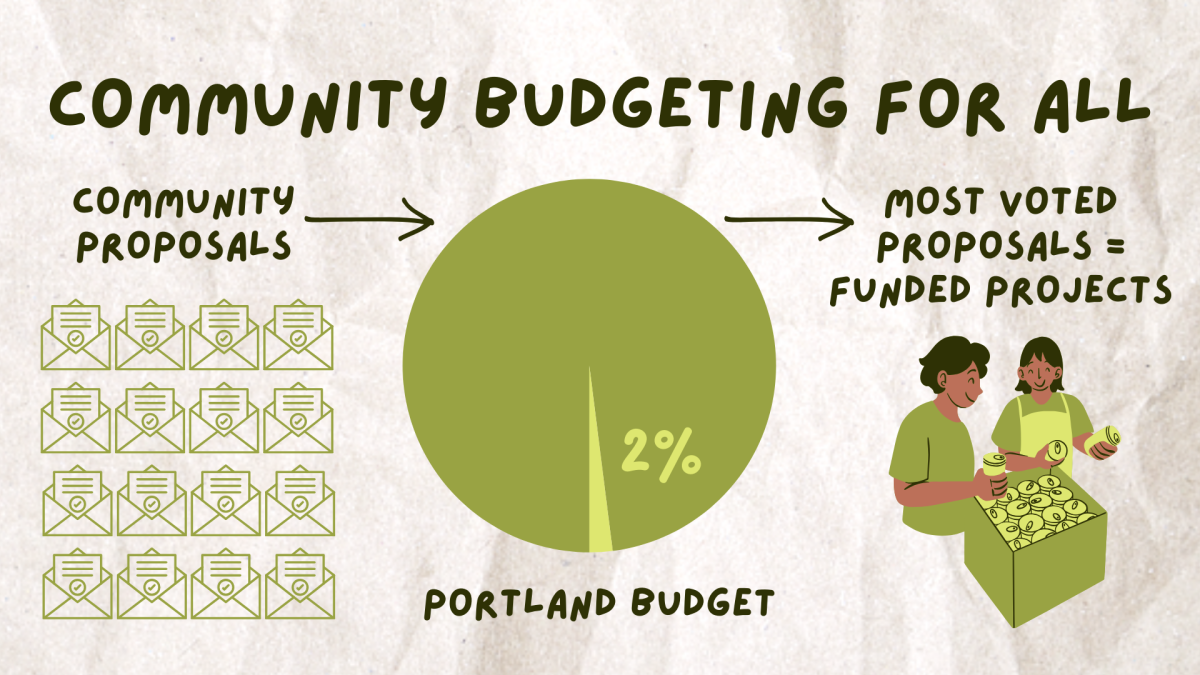How would you spend $1 million? How about $15 million?
That is the question Participatory Budgeting Oregon (PBO) wants to answer. The organization is currently gathering signatures to reach Portlanders’ November voting ballots as part of their Community Budgeting For All Campaign.
“Participatory budgeting is a democratic process in which community members decide how to spend part of a public budget. People exercise real power over real money,” reads PBO’s website.
Spearheaded by civic advocacy organizations Next Up and East County Rising, the initiative aims to give residents the chance to submit proposals on how to allocate two percent of Portland’s general fund, an estimated $15.6 million according to PBO, to directly solve community problems.
Isabela Villareal, the policy and communications director at Next Up Oregon, has been advocating for participatory budgeting since 2019.
“This is a really excellent opportunity to actually bring in more diverse voices and ensure that the needs of our communities are being met,” she said.
Villareal sees participatory budgeting as a great opportunity for youth who aren’t old enough to vote.
“We know that young people deserve a much greater say, in our local government and in our communities,” said Villareal.
Lincoln High School senior Chloe Gilmore, who recently joined the campaign as a signature gatherer, agrees.
“A lot of youth don’t feel like our voices are being heard by elected officials and city government, so it’s important for us to have more transparency and a greater say on how money is being spent,” they said.
Gilmore emphasizes how all Portland residents can benefit from participatory budgeting.
“Community budgeting for all would give opportunities to historically disenfranchised groups to gain back power in the political process,” they said.
Since its creation in 1989 in Brazil, participatory budgeting has been used worldwide and across the nation from Seattle, New York and Chicago to implement community-led projects, according to PBO.
In 2023, Seattle used a participatory budgeting process to allocate $27 million to six winning community proposals.
As highlighted by the Seattle Times, the projects help establish more public hygiene facilities, a community center for Native youth and housing assistance in addition to other projects.
Villareal encourages interested folks to attend paid petition gatherings during PBO’s weekend canvases to reach 65,000 signatures by July 5.

